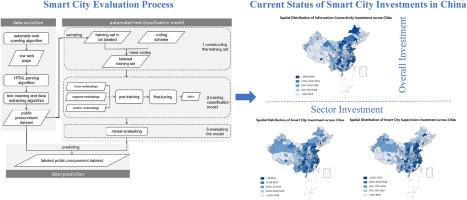Smart Cities Lighting the Way: Optimizing Energy Structure and Efficiency in the Border Areas
IF 9.7
1区 环境科学与生态学
Q1 ENGINEERING, ENVIRONMENTAL
引用次数: 0
Abstract
Underdeveloped border regions face critical challenges in energy efficiency and energy structure, for which smart cities, leveraging advanced digital technologies, offer promising solutions. This study employs text classification algorithms to quantitatively assess smart cities in China and systematically evaluate the impact of smart cities on energy structure and energy efficiency in border areas. The research indicates that smart cities significantly optimize energy structures and enhance energy efficiency, especially in border areas. The mechanisms include improving government regulatory levels through smart supervision investments and reducing market segmentation by enhancing information connectivity. The effect of smart cities is more pronounced in underdeveloped provinces, industrial cities, and resource-oriented areas than in other regions. In addition, investments by provincial governments in both smart supervision and information connectivity have a greater impact on energy consumption in border areas than such investments by municipal governments. This study provides an empirical basis for using smart cities to optimize energy structures and mitigate energy inefficiency in border areas and offers practical insights for effectively allocating government funds to maximize the benefits of smart city investments.

欠发达的边境地区在能源效率和能源结构方面面临严峻挑战,而利用先进数字技术的智慧城市为这些挑战提供了有前景的解决方案。本研究采用文本分类算法对中国智慧城市进行定量评估,系统评价智慧城市对边境地区能源结构和能源效率的影响。研究表明,智慧城市能显著优化能源结构,提高能源效率,尤其是在边境地区。其机制包括通过智能监管投资提高政府监管水平,以及通过加强信息互联互通减少市场分割。与其他地区相比,智慧城市在欠发达省份、工业城市和资源型地区的效果更为明显。此外,省级政府在智能监管和信息互联互通方面的投资对边境地区能源消耗的影响要大于市级政府的投资。这项研究为利用智慧城市优化能源结构、缓解边境地区能源效率低下问题提供了实证依据,并为有效分配政府资金以实现智慧城市投资效益最大化提供了实践启示。
本文章由计算机程序翻译,如有差异,请以英文原文为准。
求助全文
约1分钟内获得全文
求助全文
来源期刊

Journal of Cleaner Production
环境科学-工程:环境
CiteScore
20.40
自引率
9.00%
发文量
4720
审稿时长
111 days
期刊介绍:
The Journal of Cleaner Production is an international, transdisciplinary journal that addresses and discusses theoretical and practical Cleaner Production, Environmental, and Sustainability issues. It aims to help societies become more sustainable by focusing on the concept of 'Cleaner Production', which aims at preventing waste production and increasing efficiencies in energy, water, resources, and human capital use. The journal serves as a platform for corporations, governments, education institutions, regions, and societies to engage in discussions and research related to Cleaner Production, environmental, and sustainability practices.
 求助内容:
求助内容: 应助结果提醒方式:
应助结果提醒方式:


